 “It's hard for me to believe that people who read very little - or not at all in some cases - should presume to write and expect people to like what they have written. Can I be blunt on this subject? If you don't have time to read, you don't have the time - or the tools - to write. Simple as that.”
- Stephen King
The best advice I have ever received on writing was also the simplest: READ.
Read anything and everything. Read novels and short stories; read newspapers and magazines; read non-fiction and fiction; read poetry, plays, song lyrics, joke books, billboards. Read classic literature, pulp fiction, and the manual to your newest electronic device. Read. It doesn’t matter if what you read is well written or crap. There is something to be learned from all of it.
Like any trade, writers need tools to practice their craft. Rather than hammers and saws or wrenches and screwdrivers, we use tools such as vocabulary, punctuation, and sentence structure. While these are things we begin to acquire as very small children, it can take a lifetime of study and practice to use them well. I like to think of reading as part of a writer’s apprenticeship. The more I read the more I learn about writing. Even more importantly, the more I read the more I understand about writing.
Here’s another analogy, not because I think you don’t understand, but because I enjoy writing analogies. They’re fun.
Reading is like going to the grocery store to stock the pantry in your kitchen. If you want to prepare a great meal, then you probably want to stock items from more than one department in the store. With writing though, the ingredients you buy don’t ever spoil. They may need refreshed from time to time, but once you buy them, you generally keep them for all of your life. The more you read, the more items you are putting into your writing pantry. The more writing ingredients you have, the tastier the meals you can prepare for your readers.
Reading expands vocabulary and imagination; it entertains and informs; it takes us outside of our individual world and shows us what does or could lie beyond the limits of ourselves. Good writing shows me how to do things right or better, while bad writing teaches me what to avoid. Non-fiction informs me and Fiction opens doors in my imagination that I may not have been previously aware of. I learn something from everything I read, even when I’m not trying to. I can’t help it.
I’ve gotten story ideas from advertisements and magazine articles; I’ve done research in biographies and encyclopedias; I learned how to better pace my stories by reading poetry. The amazing thing is, I don’t know I’m learning these things until I sit down to write. It’s then that the rewards are reaped.
So if you want to write, you need to read. Simple as that.
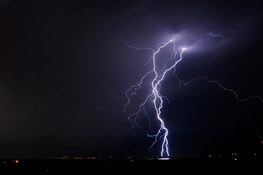 “The difference between the almost right word and the right word is really a large matter – it’s the difference between the lightning bug and the lightning.”
- Mark Twain (Samuel Clemens)
As a writer, the power of words fascinates me. Maybe that’s true of all writers and maybe it’s not. I mean really though, who doesn’t love the word –sensuous ? It has power, it has grace, and spoken with the proper articulation, it can immediately get you the attention of the four or five strangers who were previously ignoring you in the elevator.
It works in writing as well.
Word choice is such an important part of telling a story, and one so often not given the proper amount of attention. It’s the art in the craft. Words carry weight and establish rhythm; they convey thought and provoke emotion; they entice, entertain, and carry a reader to the realm of the writer’s creation. Through words, all of imagination can become real, if only for a brief moment in time.
As readers, we desire surrender of our current reality and rely on the writer to give us a new one; to immerse us in a time and place beyond ourselves.
As writers, we create realities and populate them with the creatures and characters of our unique imaginations. It is with words we breathe life into those realities and capture them upon the page. There they remain in a state of eternal suspension until they are read. It is within the readers mind, his or hers imagination, that the captured life is released and finds its unique existence.
There is magic in reading a well written story, no matter the genre. Magic, woven by the words we choose and the way we use them, place them, punctuate them. The strength of that magic carries the story. The more precise our selections, the more real our alternate realities feel to a reader. While the almost-right words can leave that reality flat and featureless, the right words can infuse it with life and submerse a reader so completely they forget it's only imagined.
Pursuing the right word is pursuing the art of being a great writer. It should be taken seriously.
Knowing what the right word is, isn’t always an easy task. It takes thought and practice. But when it’s right, it makes all the difference in the world.
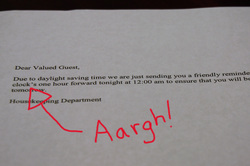 "When something can be read without effort, great effort has gone into its writing."
- Enrique Jardiel Poncela
As a beginning writer, I found that my biggest struggle was with the mechanics of writing well. Before becoming serious about getting my work published, I didn't worry about things like spelling errors or punctuation mistakes. I seldom thought twice about proper sentence structure or even manuscript format. Back then the only person who read my stuff was me, and I always knew what I meant to say; Even when what I wrote was something totally different.
However, the more serious I became, the more evident it was that I had fallen into some very bad habits. I quickly realized that if I wanted anyone at all to take my writing seriously, then I needed to get serious about the mechanics of writing.
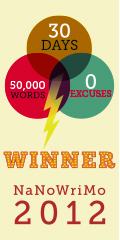 One hasn't become a writer until one has distilled writing into a habit, and that habit has been forced into an obsession. Writing has to be an obsession. It has to be something as organic, physiological and psychological as speaking or sleeping or eating.
-Niyi Osundare
TGIO – The phrase of NaNo participants around the world today. “Thank God it’s over!”
Strangely enough I’m not chanting it. (Whispering it in the dark corners of my creepy subconscious – maybe, but definitely not shouting it from the rooftops.)
Going into the month of November, I had no idea what I was getting into. I thought it would be a nice change of pace and a break from my monotonous editing work on my current fantasy novel. I thought it would be fun. In all honesty, there were moments when it really was fun. There were moments when it really wasn’t as well.
I told myself if I got out 30,000 words I would be happy with my effort. After all, I was just going to hash out a rough draft; work up the bones for my next novel. One of the guidelines for NaNo is to turn off the inner editor and just freely write. After weeks of picking apart my current story line by line, parting company with my inner-editor was holding massive appeal to me. I was having no difficulty at all with the idea spending 30 days on my own with my writing and a crude outline of a story that had been rippling the water of my imagination for nearly a year now while its older sibling enjoyed the lime light of my undivided attention. At least in that
respect I was right. It was a fantastic diversion.
But at 11:27 pm last night (Nov. 30), when I closed my file at 50,106 words, the only thing I experienced was relief. I immediately went on line and had the manuscript validated by the NaNoWriMo website, which brought me to a strange little video of a bunch of strangers congratulating me. It was good they were there because the rest of my house was sound asleep, including the dog. It would have felt odd to celebrate alone.I had finished the challenge and it felt good.
This morning I sat down once again at my computer, as you can see, and began to ask myself: What did I learn this month? I just spent 30 days working on a story that very likely will get little if any attention for at least another month or two while I go back to wrapping up my ‘Seven Circles’ manuscript. Was it ultimately worth it?
My answer: YES
I’ve written almost every day this month, with the exception of a couple of days around Thanksgiving when we had family in from out of state. Other than that, I’ve developed a writing time nearly every evening, for around two hours. The more often I indulged, the easier it got. I’ve developed a much more stable writing habit. And with the end counted down for me - day by day - I was able to stay focused on the work and the story that was unfolding before me. So while I didn’t get to a lot of write-ins and only got to meet about six other participants, I did improve my writing habit and now have 50,106 words towards completing my next novel. Not a bad take for the month.
Will I do it again next year? I can’t say for certain, but I think I might.
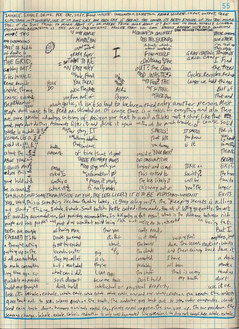 "I write for the same reason I breath - because if I didn't, I would die."
- Isaac Asimov
I don't know for certain, but I suspect that every great writer feels this pull, at least from time to time. It's a feeling akin to tightness in the chest, combined with a racing of the mind and a maddening of the intellect as well as the spirit. Once the story, or the thought, or the emotion, idea, or image takes hold of the mind, there is no denying the impulse, the raw and carnal need, to express the mind's obsession before any hope of calmness or ordinary life can return. To deny the urge is paramount to denying the body air.
It is a maddening feeling to experience an unsolicited need so great as that call from within to write. There is also no greater feeling than to answer that call and find the rewards of the labors to be spectacular in their completed form.
I feel, at least for myself, it is an addiction; a need that manifests itself in both physical and psychological forms. Certainly it can take over a life just the same as an addiction to alcohol or drugs. Allowed to reach obsessive proportions, it can even do as much damage. Yet to be successful each writer must come to terms with it. Welcoming it into our lives and accepting it as a natural part of what makes us uniquely who we are.
For me being a writer has never really been a choice. Even when I tried to deny it, swore off it cold turkey, I could never beat the addiction. I was miserable in my life and in my mind and soul. I went through days, weeks and months trying to understand life without the release of thought upon paper. It was hell.
To this day I still don't understand how non-writers survive in this world. I have to write. It is my happiness, my sanity, my vice, my passion and my desire. It is my air.
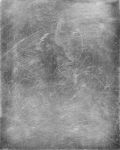 Writers block: When your imaginary friends won't talk to
you.
This has got to be the most debated topic among writers. Is it real and how do you get around it? In my opinion it is very real and over the years I have devised a multitude of ways to get around/past it. Sometimes they work, sometimes they don't. But I think the best advice I've ever received on the topic was this: Don't let it get you down. It will eventually pass.
As I said, I have devised a whole list of tactics for dealing with it. The most successful one for me has been to pick up a book - or a magazine or news paper -
and just start reading -Anything that will totally disengage my mind from the story at hand. Most often by 10 to 20 minutes in, I can stop and begin to think about my own work again. If nothing still stands before me, then I think about what I just read and what I liked or didn't like about it. Things like the writer's style or the choice of words they used. I analyze sentence structure or even topic and try to think about what's different between what I've just read and what I'm trying to write. More often than not, I have the sparks of some new idea and I set to work on it immediately. Even if I know I probably won't use it. The important thing is to get back to writing. Once the ideas are flowing again it's easy to get back to where I need to be and start being productive once again.
My second tactic is a bit more sadistic. I try to pick one chore around the house that I really do not enjoy at all, (preferably something mindless) like shampooing the carpet of washing out the trash cans or scrubbing the bath tub, and go do that instead. Then as I work I think about the story and tell myself that I can quit the task if I can work out the next scene in my head so it's ready to write, then I can stop and go write it. It's proved to be a very motivating tactic.
The point of this is – every writer has times when words are not our friends. Keeping a record of what works in getting past those moments can be helpful, but the real key is just to keep on writing and don’t give up.
 Either marry your work – take it seriously and do it every day – or date it – write only when you feel like it – but know which you are doing and the repercussions of both.
- Anonymous
“Hey, you busy tomorrow night? You want to get together for a couple of hours, have some fun?”
- Or -
“To have and to hold, from this day forward, for better, for worse, for richer, for poorer, in sickness and in health, until death do us part.”
Which relationship am I in? Well, for about 25 years we dated. I was in love with writing, but I just couldn’t bring myself to commit. It was fun and all, but I always let other things come between us. Writing had other ideas though, and I eventually came to a point in my life when I had to choose. I stopped writing –cold turkey – and tried to live my life without it.
It’s hard to break a lifelong addiction though, and my will power sucks: I caved within a week. My family and friends all thought I was nuts but I realized I just couldn’t live without Writing in my life if I wanted to stay sane. It was time to get serious and take the plunge.
The ring was cheap - a box of pens and about two hundred sheets of paper; The engagement was short - less than a week; The honeymoon was about 20,000 words long, and we went to a truly magical and beautiful place.
Then the glitter wore off and reality set in. It was difficult at first – learning to live with one another day in and day out – but in time we began to work things out. Just like a spouse, Writing requires dedication and commitment. It’s work, real work. It might come easier to some than to others, but it still requires great attention and diligence, just like a marriage. You have to work on it every day, whether you’re in the mood or not. Just like a marriage too, you get out what you put in.
It’s easy to write.
It’s hard to write well.
It’s even harder still to write skillfully.
Take the time to be honest with yourself and with your writing. Know why you do it and what you expect to get out of it. The more honest you can be, the better the chances you will have a long and happy relationship, whether you just date or you wear a ring.
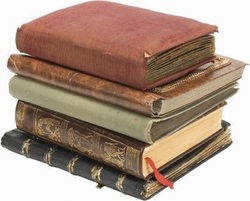 'The primary distinction of the artist is that he must actively cultivate that state which most men, necessarily, must avoid: the state of being alone.'
— James Baldwin
When I write, I write alone. All writers do. It’s a prerequisite of the trade. My characters and my stories live in my head. It’s a big place, lots of crazy stuff going on in there I know, but it’s only big enough for one. The idea of writing one of my own stories as part of a collective project is a rather strange concept for me.
I try to be open to new opportunities and new ways to learn and improve my writing skills. With this in mind, I have decided to do NaNoWriMo this year. While I have never done it before, I’ve heard it’s a good exercise to get the writing juices flowing. Seeing as how I haven’t been as productive as I’d like to be lately, I thought it might be just the thing to motivate me to keep my fingers on the keys. (Not to mention it seems a good place to get connected with a writing community in my area.)
If you’ve done it, you already know more than me. If you haven’t, then here is the link to the site and you can learn all about it there:
http://www.nanowrimo.org/
I think I need a break from my 'Seven Circles of Heil' story. I suspect a month away from it might be just the thing to rejuvenate my efforts at finishing it. While progress is still crawling along, I’ve realized that I’m just getting sick of it. Not the story mind you, but looking at it day in and day out. I’ve gotten to the point of editing where I’m doing it almost line by line, tying up all threads, item by item. It’s got to be done, but it’s tedious. It might be nice to step back for a few weeks and come December, see it with “Fresh Eyes,” so to speak.
Then again maybe this is just another well camouflaged act of avoidance.
Either way I’m excited about starting NaNo.
Anyone out there ever done it? How did it work out for you? What did you take away from it when it was over? Let me know if you would, I’m really interested.
It is hard to fight an enemy who has outposts in your head. — Audre Lord
Looking around, my mind wanders, as it always does. Also as it always does, most of it's wandering is to get out of its current situation. I'd like to call it boredom, but in truth it's more likely that it wanders for avoidance. The more I feel the need to do a specific thing, the more my mind works to avoid it.
Currently I have been working on my second fantasy novel. The first one hasn't sold yet, but that's ok. It's currently out seeking an agent and I have a feeling it eventually will find just the right one.
So why am I writing a blog post and not working on my novel? As I said before: Avoidance.
It's one of those personality ticks that annoy me about myself, but also one that defines me. I've tried to change it about myself, but I find I'm never as happy when I'm trying to be something I'm not, as I am when I just accept and deal with who I am.
I made a good deal of progress on the story yesterday, and I am pleased about that, but I know I'm far from done. I would love to just snap my fingers and be finished, but lacking the magical abilities of my main character, I don't see that happening. Besides, I doubt it would be nearly as satisfying as the struggle of wresting the words from the chaos of my mind and the vastness of my imagination. There is a perverse joy for me in laying these words out on paper to create something interesting and, at moments, spellbinding.
I'm not trying to say that I'm a spectacular writer. But I do have spectacular moments. There are times when the words come to me only after countless days of scribbling and arranging, rearranging, trashing and redefining them. But there are moments, when ideas open up with a sense of perfection that make all the struggles to find them worthwhile.
Writing is the only thing that has been a constant throughout my life. I've changed jobs, careers, interests, hobbies, locations. But writing has always been a part of me.I don't feel I'm me without it. I never go anywhere without a pencil and notebook. Every minute I'm able, I turn to words in some form. It's an obsession that tames the chaos of my mind; The order to the madness; The gravity that holds me in my life.
It took me a long time to be able to call myself a writer, but I do now. I'm not a published one yet - unless you count some essays I wrote in high school that won some contests and were published in local newspapers - but I know I will be someday. For now I am pleased just to call myself what I am and have been for all of my adult life and a good portion of my childhood: I am a writer.
I find saying it out loud and writing it down, both make it more difficult to avoid.
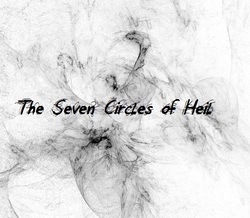 'If you write one story, it may be bad; if you write a hundred, you have the odds in your favor.'
- Edgar Rice Burroughs
Coming from a man who explored Mars long before mankind ever made it there, I have to believe he knew a little something. While I read a few of his books as a much younger me, I have to say I never got hooked on his stories. However I must give credit where credit is due, and the man could tell a story. He had vivid imagery, excellent pace, and gripping ideas. Imagination like his is legendary for a reason.
There are many authors I admire, most for style more than individual stories. I tend to measure my writing against theirs and strive to emulate the qualities I admire most in their work. I don't want to write like them, but I want to learn how to do what they do, or did. I want to perfect my prose so to speak. I want to learn to pace my stories perfectly; craft my dialogue seamlessly; make my settings so real the reader tastes the honey in the tea the protagonist is drinking or smells the sweat of the horse he's riding on. I want to master the skills to tell the best story I can. I'll never reach the level of craft I strive for if I don't keep writing new stories and exploring new ideas.
My second novel is in the works. It's also a fantasy novel. A bit more mature than the first. A bit more complex as well I suspect. It's about 90% complete and weighing in around 77,000 words in its current condition. I still have a few scenes to work out, but I can see the entire story in my mind and it's slowly seeping out onto the pages.
I'm excited about this one. I'm looking forward to completing it, even though that
means taking it out in the yard and shooting it.
|









 RSS Feed
RSS Feed